We explore Karl Marx, and his major influences. In addition, we discuss the main characteristics of Marxist thought.
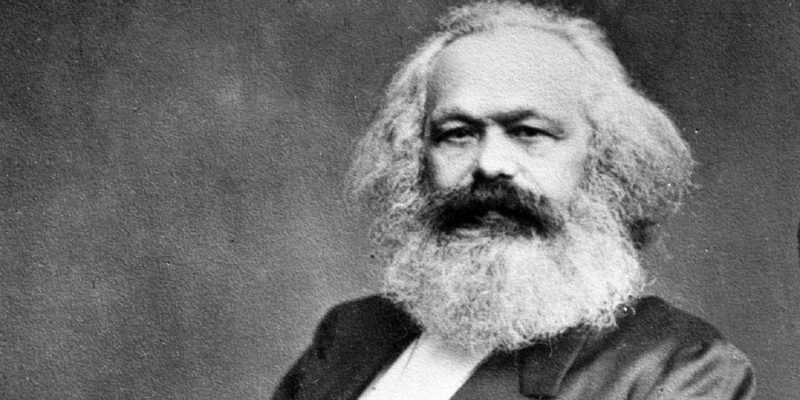
Who was Karl Marx?
Karl Marx was a 19th-century philosopher, economist, and intellectual. Along with Friedrich Engels, he stands as the most prominent theorist of communism and is regarded as the father of socialism. Due to his journalistic writings, which opposed the economic and aristocratic powers, he was subject to political persecution, being expelled both from France and Germany.
Today, his theories about economics and politics, as well as his ideology continue to exert a profound influence on philosophers, social scientists, and politicians worldwide. Marx is considered to be the foremost analyst of the new society that emerged with the Industrial Revolution and capitalism.
- See also: Jean Monnet (1888-1979)
Biography
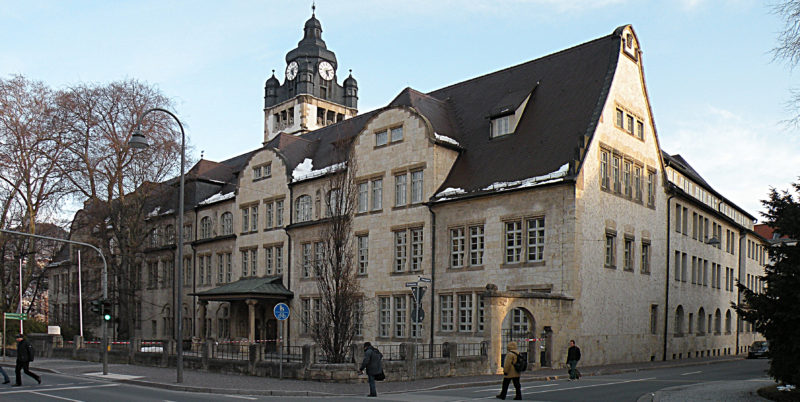
Karl Marx was born on May 5, 1818, in Trier, in the former Kingdom of Prussia (present-day Germany). He was born into a middle-class family, the grandson of two rabbis. Karl's father converted to Protestantism to avoid the antisemitic restrictions prevalent in Prussia at the time. This explains why Marx was baptized. The family had nine children.
He studied law at the University of Bonn, and in 1841 received a doctorate from the University of Jena, with his doctoral thesis "The Difference Between the Democritean and Epicurean Philosophy of Nature."
In 1843, he moved to Paris, where he collaborated in the socialist newspaper “Deutsch-Französische Jahrbücher” (German-French Annals), but in 1845 he was expelled from France for his socialist ideas and emigrated to Brussels (Belgium) where he was forbidden to publish political texts. In 1848, he returned to Cologne (Germany) but was soon expelled. He subsequently moved to London in 1849, where he died on March 14, 1883.
Follower and critic of Friedrich Hegel
Friedrich Hegel was a German philosopher (1770 – 1831) whose ideas profoundly influenced 19th and 20th-century thought. In the 1840s, Marx was among the Young Hegelians, along with Ludwig Feuerbach and Bruno Bauer.
While the new thinkers criticized Hegel's metaphysical assumptions, they adopted his dialectical method as a critical stance towards the various aspects of society: ideology, religion, and politics.
Influence of Friedrich Engels
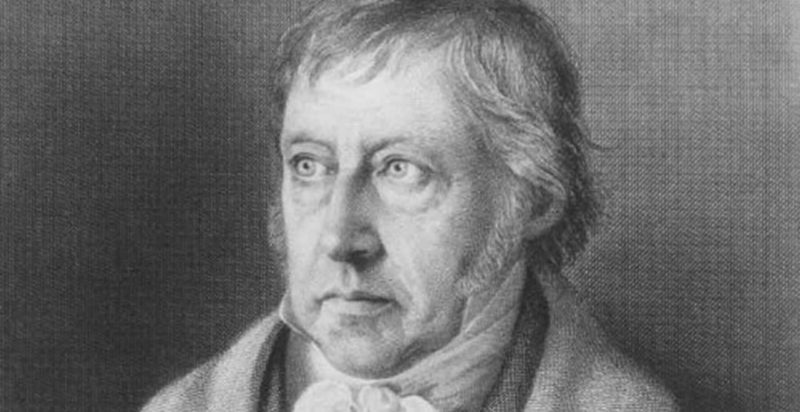
Marx met Engels in Paris in 1844. Engels' book "The Condition of the Working Class in England" convinced Marx that the instrument of the socialist revolution would be the working class. Together they wrote a series of articles and books that epitomize Marxist thought. In 1848, they jointly published The Manifesto of the Communist Party.
Historical materialism
Marx criticized materialist philosophers for being merely contemplative. Furthermore, he rejected idealism for reducing practice to theory.
Marx proposed historical materialism as an alternative, which posits that the world is changed not by ideas but through material, practical, and physical action. Historical materialism is one of the notions Marx developed with Engels in the book “The German Ideology”.
Base and Superstructure
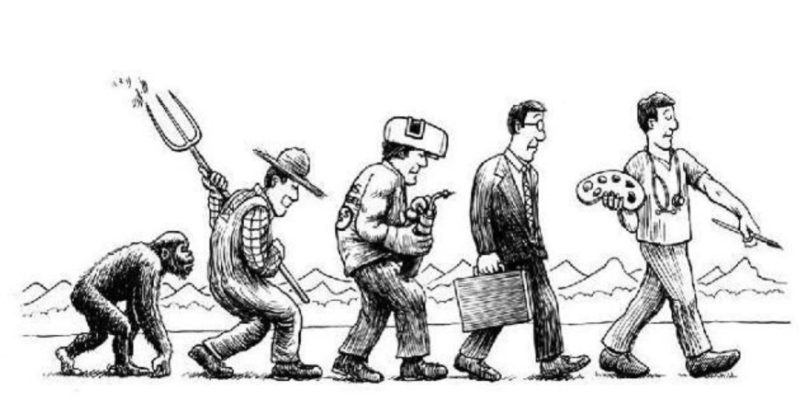
Historical materialism holds that:
- Human beings establish relations of production that are independent of their will.
- The economic structure of society is the sum of all the relations of production.
- Corresponding to each economic structure is a legal and political superstructure as well as certain forms of social consciousness.
- The mode of production thus conditions the political and ideological life of a society.
Base and Superstructure
According to Marx, the struggle between the exploited and the exploiters is a constant theme in human history. With the development of capitalism, this struggle occurs between the two classes that divide society:
- Working class or proletariat. These individuals sell their labor, and do not own the means of production. They create the wealth of a society. The segment of the proletariat living in extreme poverty is called the lumpenproletariat.
- Bourgeoisie. These individuals own the means of production and employ the proletariat in exchange for wages.
- Capitalists. A portion of the bourgeoisie does not need to work due to the wealth they obtain simply by extracting surplus value from the labor of the proletariat.
- Petty bourgeoisie. Another portion of the bourgeoisie does work but owns the means of production (small business owners, landowning farmers, merchants).
Das Kapital

Marx’s book "Das Kapital: Kritik der politischen Ökonomie" ("Capital: A Critique of Political Economy") is a book published as three volumes, the first of which was published in 1867, and the next two following Marx's death.
Das Kapital, is considered to be Marx’s magnum opus. In it, he expounds on how capitalist production works, examining the origin and function of commodities, money, surplus value, wages, and the accumulation of capital.
Surplus value and exploitation
Capitalism is based on the premise of capital accumulation. In the context of capitalism, the worker who generates wealth receives a wage that is inferior to the value of their output. This difference is called surplus value. Surplus value is retained by capitalists, constituting the means through which capital is accumulated. Hence capital accumulation is a direct result of the exploitation of workers.
Dictatorship of the proletariat
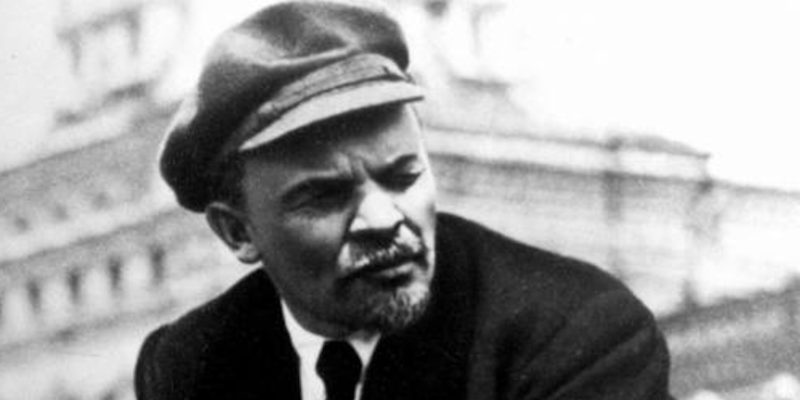
- It is a form of society in which the proletariat has control over political power.
- It is posed as a transition period between capitalism and communism, therefore it is only a means and not an end.
- Vladimir Lenin later took the idea of the Dictatorship of the proletariat not merely as a transitional period but as the initial phase of communism.
Karl Marx quotes
- "Philosophers have only interpreted the world, in various ways; the point, however, is to change it."
- "The history of all hitherto existing society is the history of class struggles."
- "Man is the supreme being for man."
- "The worst fight is the one that is not fought."
- "All science would be superfluous if the outward appearance and the essence of things directly coincided".
- "The motor force of history is class struggle."
- "Communism deprives no man of the power to appropriate the products of society; all that it does is to deprive him of the power to subjugate the labor of others by means of such appropriation."
- "It is not the consciousness of men that determines their being, but, on the contrary, their social being that determines their consciousness."
Explore next:
Was this information useful to you?
Yes NoThank you for visiting us :)